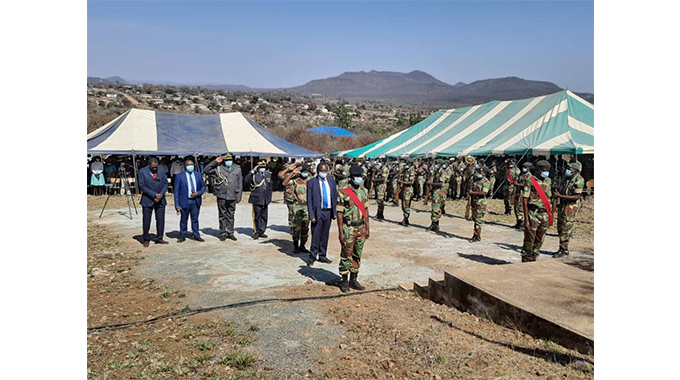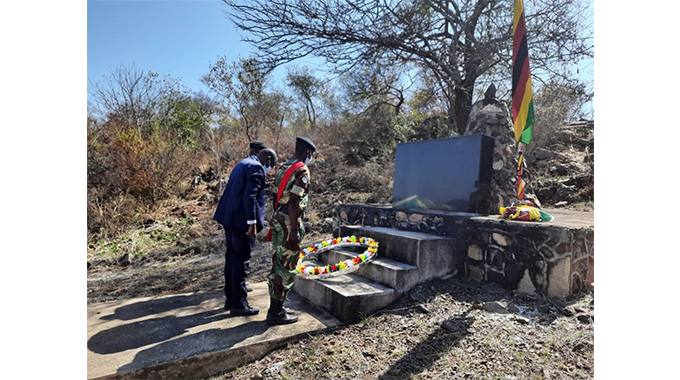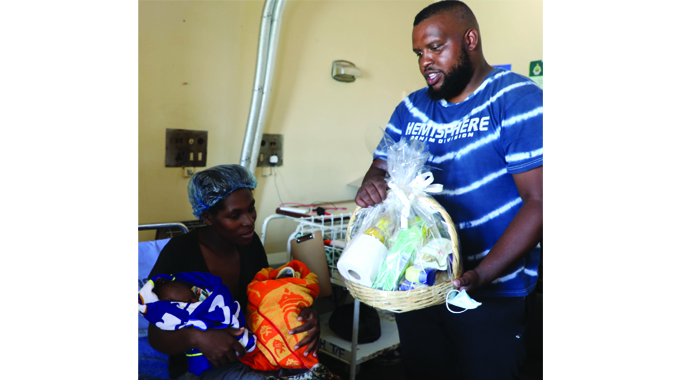A day of remembrance in Gwanda

Yoliswa Dube-Moyo, Matabeleland South Bureau Chief
CHILDREN sat under the shade of trees as they hid from the sweltering Gwanda sun while they watched their grandmothers picking almost every bit of leaf and twig that fell onto the graves of their dearly departed interred at the provincial shrine.
They watched as they swept and continued to coddle the tombstones.
Many of them had probably never met these luminaries but have heard of their great exploits and sacrifices to which they deserve honour.
The army brass band sprung them to their feet as service chiefs in full colours with gleaming badges joined a national salute in honour of the fallen heroes.

They watched, together with scores that had gathered at the provincial shrine as wreaths were meticulously laid at the Tomb of the Unknown Soldier.
For them, it was a spectacle to behold in the otherwise quiet mining town but for Gogo Modi Sibanda and many like her, the day goes beyond the pageantry and military honours.
It is a reminder of her late husband, Cde Simon Sibanda, who left her with three young children at their rural home in Matshetsheni, Gwanda, to join the liberation struggle.
He was gone for four years and in those years, she lived in the dark — not knowing whether he was dead or alive.
She was unemployed and in those years struggled to feed and clothe her children.
As a young couple starting out, they did not own any livestock nor did they have farming land.
“He left me with three children and in the four years he was gone, life was very tough. I wouldn’t hear anyone saying they had seen him so I just waited. I remember at some point my children would wear tattered clothes. My neighbours would help with food here and there. In those days, I wasn’t cultivating enough so food was a challenge,” said Gogo Sibanda.

She said she held onto the promises her husband made to her and hoped that he would make it back home alive.
“When he came back, I went to meet him in Harare but I had a black out when I saw him. Till this day, I can’t remember exactly what happened in that moment. I guess I was stunned and couldn’t believe that he was still alive after all those years of anxiety and uncertainty,” said Gogo Sibanda.
In those days, there were no cell phones, neither could she write her husband a letter or keep any form of contact with him.
“He came back much the same as when he left but I noticed that he was not very comfortable around his surroundings. We used to like going to the river and he would put one of our children on his back. He would however quickly return the child to me saying someone might think it’s a kickback. He was very paranoid but with time, he started to loosen up,” said Gogo Sibanda.
When Cde Sibanda came back home from the liberation struggle, the three minor children he had left couldn’t remember who he was.

river-Image taken from Shutterstock
“It took them a while to understand that he was their father. One of them kept saying the man should go back where he came from because he was like a stranger to them. He however continued to engage them and extended kindness towards them until they got used to him,” said Gogo Sibanda.
She said her husband of 35 years was an organised man who was constantly planning for the future.
“He would sit us down as a family and write down whatever we would discuss. I still have some of his documents up to today because he was such an organised man,” said Gogo Sibanda.
“I miss him all the more because even when he came back from the war, he would be constantly away from home as he continued to work for the country. Unfortunately, he fell sick and died before he could enjoy the fruits of his hard work which culminated in the land reform programme. He however left us a true legacy.”
One of his daughters, Ms Nokuthula Sibanda described her father as a loving man.

racial segregation-Image taken from Shutterstock
“This day reminds us of when he was still with us; how we lived and related with him. It reminds us of the work he did for our country and the sacrifice he made for us to be liberated. We are where we are as a family because of his hard work,” said Ms Sibanda.
“ Even after I got married, he still felt obliged to contribute towards my upkeep. Racial segregation was one of the main reasons he decided to join the liberation struggle. During the war, he would watch his fellow comrades die and wondered if he would live to see the next day. At times, they wouldn’t have food or water and survived on wild fruits. The going was tough but he lived to tell the story.”
Cde Sibanda is survived by eight children, 26 grandchildren and 13 great grandchildren.
At the time of his death, he was the war veterans association provincial chairperson.
He was among the war veterans who advocated for the current location of the provincial shrine in Gwanda and became the third hero to be interred there. — @Yolisswa











Comments